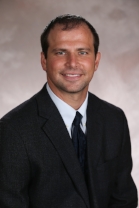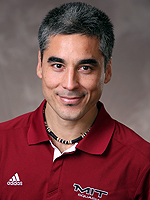AN INSIDE LOOK BEHIND THE SCENES at THE COLLEGE SQUASH EXPERIENCE
Portraits and interviews of coaches describing their programs, team cultures, facilities, and philosophies in their own words.
Paul Assaiante, Trinity College
16 Time National Champion
Coach U.S. National Teams
Holds record for longest winning streak in intercollegiate sports -252 wins in a row
Coached 75 All-Americans
Member Springfield College Hall of Fame
Author, "Run to the Roar, 2010" (http://www.runtoroar.com/)
"As an endorsement of the concept of CS insiders, I love this idea. I feel that those students growing up and playing in the US are fairly wired into what opportunities exist although I would suggest that having a realistic perspective of what will be available to them academically will help to prevent that panicked rush at the end of 'oh my God, am I going to get in anywhere.' If the process is properly and realistically managed much angst and trauma can be avoided.
For the international student, I feel that the college option is not often fully understood. US students are raised with college on their minds. But it often occurs too late for students from abroad. If the seeds of possibly studying abroad can be planted in the early high school years, then the importance of studies, and testing can also be emphasized besides just squash
Perhaps, CS insiders can help students achieve this goal.
Trinity is a small college in Hartford Connecticut, which is the state capitol. As a division three school we do not provide scholarships
although we do provide financial aid based on need. Our men's team has made it to the national championship match, 19 out of the past 20 years, while winning 16 of them. Our facilities are state of the art which has allowed us to host Singles, Teams and Pan American championships You can learn more about the philosophy and team culture of our program by going here and watching this film, "All In," about our 2012-13 season."
joe raho, tufts university
First Year as Head Men's and Women's Coach at Tufts
Was Assistant Coach at Brown University 2014-2016
Graduated UPenn and Captained Squash Team, 2009
"I think the Tufts program has huge potential and my goal for the teams is to try and finish second in the NESCAC for the men and women. We have some major hurdles to overcome and there are some fantastic teams in our conference, but that doesn't diminish my belief that we could finish 2nd behind Trinity for both teams. I think the school distinguishes itself in the NESCAC because of it's size(5,000 undergrads, 5,000 grads), location(basically in Boston) and sports pedigree(women's softball, 3x D3 nationals champs, men's lacrosse, 3x D3 nationals champs). Obviously it's an incredible school academically as well but so are all the NESCAC schools.
In terms of recruiting, I am always looking for players who have nice smooth movement and soft hands. Whenever I go to a squash event I am looking at who moves quickly and efficiently around the court and who has some ability to move the ball short. I also want to see them constructing rallies and putting the ball into smart places on the court. Much of the game can be taught, but some is quite innate. As a coach you just want to see that the players are starting to build that awareness and feel on the court where they are beginning to sense where their opponent is on the court and what shot will hurt them the most. Of course, just as critical is attitude and effort on court. Anyone who is playing double bounces, fishing for lets, arguing with the referee in an impolite way or doing anything really that doesn't represent themselves well will quickly be ignored by me.
Building a positive culture on the team is a gradual process, but also needs to be maintained and reinvigorated all the time. It definitely starts with bringing the right players in and then I think it comes down to running upbeat practices that keep the players motivated and engaged. Then it also incorporates doing activities together as a team off the court where some real bonding and friendship can happen. The culture we want to have is one where everybody enjoys playing, supports each other and relishes the opportunity to work hard and get better.
As far as influences and inspiration I think you draw from your own experiences. I have cool, special relationships with Peter Briggs, Mike Way, Bryan Patterson, Alex Pavulans, Stuart LeGassick, Gilly Lane, Suzie Pierrepont, Roger Flynn, Olivia Blatchford, Alan Clyne and Chris Sachvie. Training with these people, working with these coaches and just discussing squash with them has helped me craft my own vision on how to play and how to coach. I hope that I can hold myself and my players to the same standards that these people held me to.
Coaching at Brown was a really great experience for me and I felt very lucky that Stuart took a chance on me. I had been out of the game for a few years and Stuart still believed in my ability to help our players get better. I felt blessed to work with such talented men and women and I learned a tremendous amount in my three years there. My practices were much less structured when I started and much more efficient when I finished. I think I was able to communicate more effectively as I spent more time there and I began to understand what college athletes need in terms of encouragement and advice. I feel hugely indebted to Stuart for everything he helped me with and I think I will certainly try to emulate his ever positive attitude, his effortless humor and his general respect for the game and the players on the team.
http://www.gotuftsjumbos.com/sports/msquash/2017-18/releases/raho_hired
THIERRY LINCOU, mit college
Former World # 1
Advisor, U.S. National Teams
23 Career PSA Titles
2004 World Open Champion
Spent 10 seasons ranked in the top 10 in the world
4th Season Coaching MIT
French National Champion and Represented France Internationally
Manages Tecnifibre USA Squash Junior Promotions Programs
http://www.mitathletics.com/sports/m-squash/coaches/Lincou_Thierry?view=bio
Over here at MIT, the prospective student athlete needs to meet the academic requirements in the first place. They need to be good/excellent in Math and Sciences. Guys on the team are into Math, Physics, Computer Science, Engineering....We do not provide slots but if recruits qualify then I can use my full support to get players in. This makes the difference.There is no pre-read from admission, if they apply Early Action, they will get an answer from admissions mid December (the same time as the Head coach). The last 2 years I was able to get 4 recruits per year. I am proud to have a team of players who represent excellence in academics and squash. Here we probably have the best combination of Academics & Squash.
We are a young team and a new program. We are looking to continue to climb up the national ranking. We were ranked around #40 a few years back and we are now close to the top #20 and our goal is to get into the top #16 which is very challenging with no guaranteed recruiting slots We train 5-7pm every weekdays starting beginning of October and run optional sessions over the week ends as well as general fitness/ lifting sessions out of season and in summer.
I try to run the sessions around my approach of the 4 components of the Performance :
• Technique
• Fitness
• Mental
• Perception/Strategy"
It has been very enjoyable for me to transfer my skills as a former World # 1 player into being a coach on the other side of that glass. I am learning everyday in this fairly new job to be better in transmitting my knowledge and my experience to college players. Adaptation is constant. There are a lot of fundamental differences when you are part of a group and have to play, train and win for your teammates! It is all about team spirit, leadership and accountability. Competing on the Pro Tour requires a lot of work on yourself first...you need to be a little selfish/excessive/obsessed about every single details to reach the very top.....This is very exciting and motivating to learn these new skills and seeing positive results from an entire group is very satisfying for a coach."I love my job.
I love this unique environment which does not exist in other parts of the world. Squash is booming in College Squash but we are witnessing big growth in high schools, middle school with new programs/squash facilities every year....!
When we see Amanda Sobhy (Harvard), Ali Farag (Harvard), Julian Illingworth (Yale), Todd Harrity (Princeton), Chris Hanson (Dartmouth)....and their professional achievements after attending college, we can be convinced that going to to an Excellent University and playing the Pro Tour afterwards is doable. Here in the U.S., we are in the midst of something big! We are in it!
The next step is to build the National Training Center and having Squash in the Olympics. Then, the growth will be even bigger - it will be a whole new and different story!




